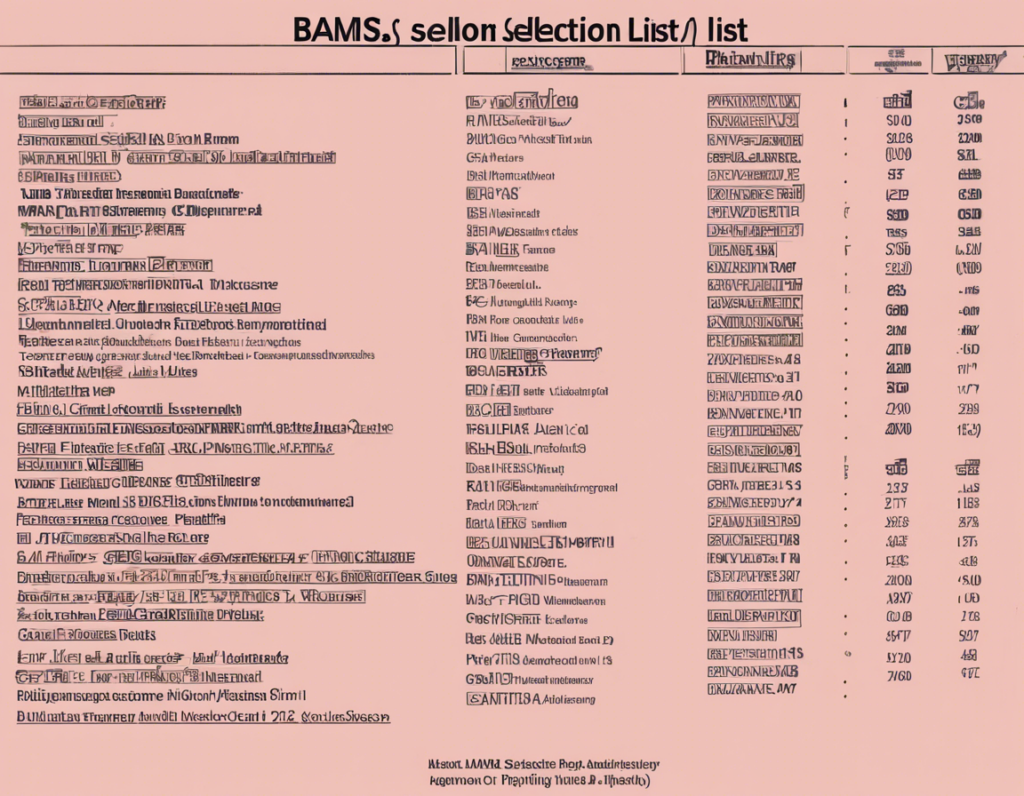Are you an aspiring student looking to pursue a career in alternative medicine? The release of the BAMS (Bachelor of Ayurvedic Medicine and Surgery) and BHMS (Bachelor of Homeopathic Medicine and Surgery) selection lists is an important event in the lives of many young individuals aiming to enter the field of traditional Indian medicine. These courses offer a unique approach to healthcare, focusing on holistic healing and natural remedies. In this article, we will delve into the details of these courses, their selection process, career opportunities, and more.
Understanding BAMS and BHMS
BAMS and BHMS are undergraduate courses in the field of alternative medicine – focusing on Ayurveda and Homeopathy respectively. Ayurveda, an ancient system of medicine originating in India, emphasizes the balance between the mind, body, and spirit for holistic well-being. Homeopathy, on the other hand, follows the principle of ‘like cures like’, using highly diluted substances to stimulate the body’s healing processes.
Selection Process for BAMS and BHMS
The selection process for BAMS and BHMS courses typically involves an entrance examination that tests the candidate’s knowledge of relevant subjects such as Physics, Chemistry, Biology, and English. The selection list is then prepared based on the candidate’s performance in the entrance exam, with top scorers securing admission to the course.
Career Opportunities in BAMS and BHMS
Graduates of BAMS and BHMS courses have a wide range of career opportunities available to them. They can work as Ayurvedic or Homeopathic Doctors in government hospitals, private clinics, or wellness centers. They can also pursue research opportunities in herbal medicine, public health, or academia. Additionally, graduates can explore career options in pharmaceutical companies, healthcare NGOs, or even start their own practice.
Scope of Practice for BAMS and BHMS Practitioners
BAMS and BHMS practitioners are trained to diagnose and treat a variety of acute and chronic health conditions using natural remedies and holistic approaches. They can prescribe Ayurvedic medicines or Homeopathic remedies, suggest lifestyle modifications, and provide dietary recommendations to their patients. Ayurvedic and Homeopathic treatments are known for their minimal side effects and focus on addressing the root cause of the illness.
Frequently Asked Questions (FAQs)
Q1: Can I pursue postgraduate studies after completing BAMS or BHMS?
A1: Yes, after completing your undergraduate degree in BAMS or BHMS, you can pursue postgraduate studies in specialized fields such as Panchakarma (Ayurveda) or Materia Medica (Homeopathy).
Q2: Are BAMS and BHMS courses recognized by regulatory bodies?
A2: Yes, BAMS courses are recognized by the Central Council of Indian Medicine (CCIM), and BHMS courses are recognized by the Central Council of Homoeopathy (CCH).
Q3: What is the duration of the BAMS and BHMS courses?
A3: The duration of the BAMS course is 5 and a half years, including a 1-year internship, while the BHMS course is 4 and a half years, followed by a 1-year internship.
Q4: Can BAMS and BHMS doctors practice allopathic medicine?
A4: No, BAMS and BHMS practitioners are trained in their respective systems of medicine and are not licensed to practice allopathic medicine.
Q5: Are there any entrance exams for admission to BAMS and BHMS courses?
A5: Yes, various state and national-level entrance exams are conducted for admission to BAMS and BHMS courses, such as NEET (National Eligibility Cum Entrance Test) and AIAPGET (All India Ayush Post Graduate Entrance Test).
